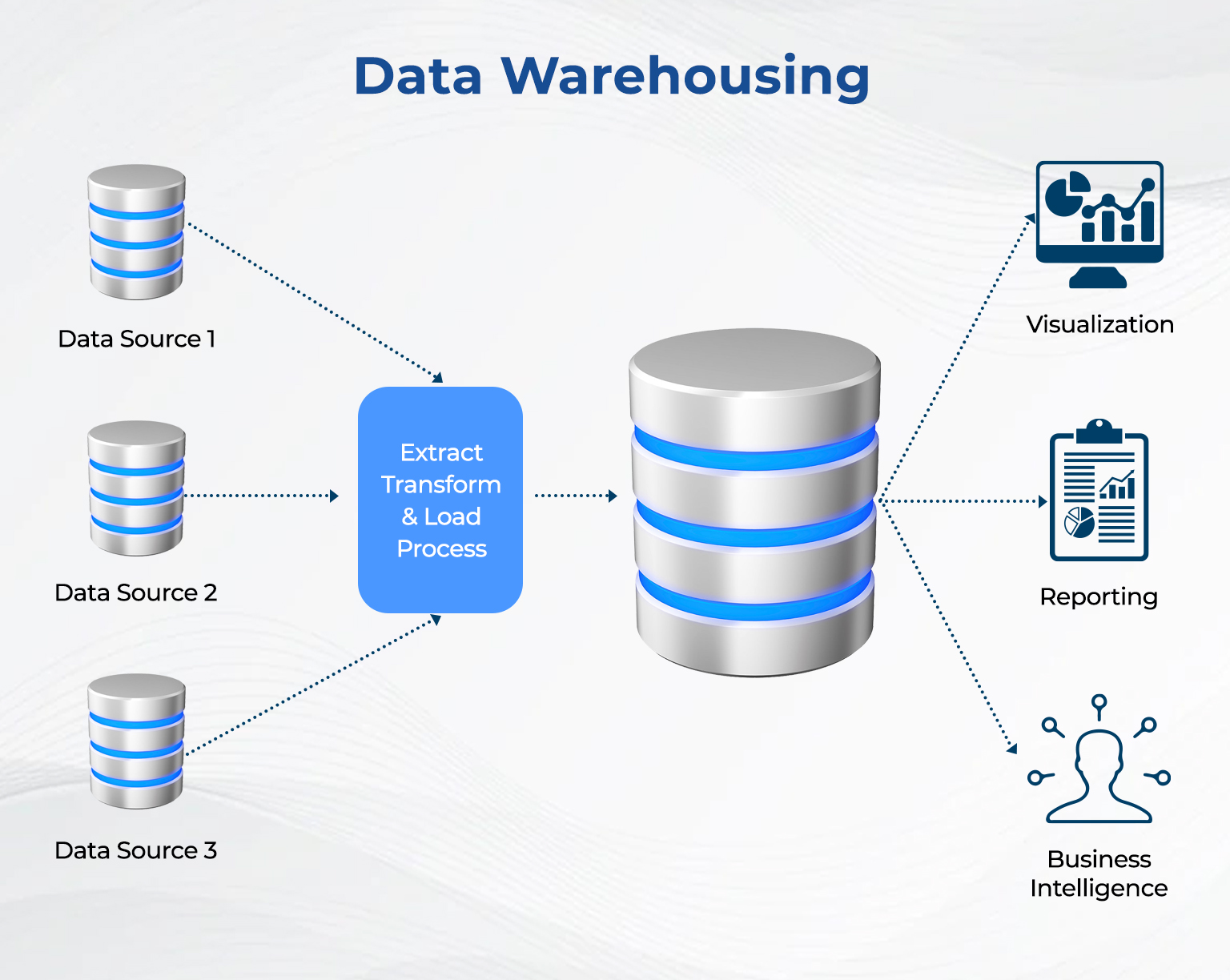Data Warehouse

A data warehouse is a centralized repository or storage system that is designed to store and manage large volumes of structured, semi-structured, and unstructured data from various sources within an organization. It serves as a consolidated and integrated data store for analysis, reporting, and decision-making purposes.
Key characteristics of data warehouses include:
Centralized Storage: Data warehouses consolidate data from multiple sources, such as transactional databases, operational systems, external sources, and other data streams, into a single centralized repository.
Subject-Oriented: Data warehouses are organized around specific subjects or business areas, such as sales, marketing, finance, or human resources. They are designed to support analytical queries and reporting for decision-making in these specific domains.
Integrated Data: Data warehouses integrate and harmonize data from disparate sources, transforming it into a consistent and standardized format. This often involves data cleansing, normalization, aggregation, and other data quality processes to ensure consistency and accuracy.
Time-Variant: Data warehouses store historical data over time, allowing analysts to perform trend analysis, historical comparisons, and longitudinal studies. Historical data is retained to support both current and future decision-making processes.
Non-Volatile: Data in a data warehouse is typically read-only or non-volatile, meaning that it is not frequently updated or modified once it is loaded into the warehouse. This ensures data consistency and stability for analytical purposes.
Optimized for Analytics: Data warehouses are optimized for complex analytical queries, reporting, data mining, and business intelligence (BI) applications. They often include features such as multidimensional data models, OLAP (Online Analytical Processing) cubes, and query optimization techniques to improve query performance.
Scalability and Performance: Data warehouses are designed to handle large volumes of data and support concurrent access by multiple users and applications. They are typically implemented using scalable architectures and distributed processing techniques to ensure performance and scalability.
Data warehouses play a crucial role in enabling organizations to gain insights, make informed decisions, and drive business performance based on data-driven insights. They serve as a foundational component of the organization's data infrastructure, supporting various analytical and reporting needs across different departments and business functions.
Thank you,